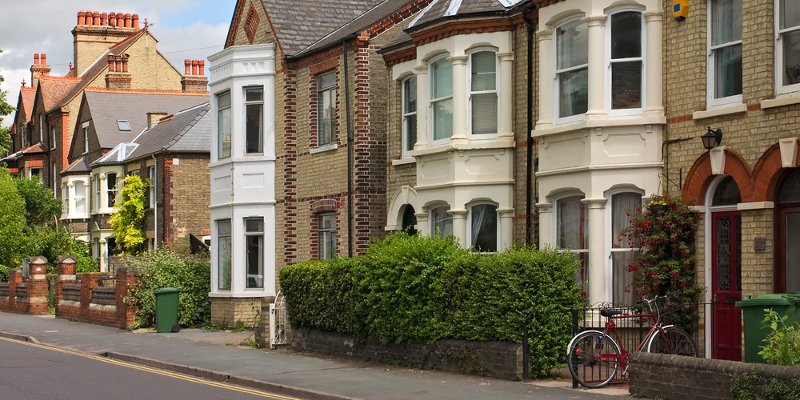House prices in the latest quarter (November-January) were 0.6% lower than in the preceding three months (August - October). On a monthly basis, house prices decreased by 2.9% in January, following a 2.5% rise in December, meaning the average house price is now £223,691.

House prices in the three months to January were 0.8% higher than in the same three months a year earlier – down from the 1.3% growth rate recorded in December, the Halifax House Price Index has found.
House prices in the latest quarter (November-January) were 0.6% lower than in the preceding three months (August - October). On a monthly basis, house prices decreased by 2.9% in January, following a 2.5% rise in December, meaning the average house price is now £223,691.
Russell Galley, managing director, Halifax, said: “Attention will no doubt be drawn towards the monthly fall of -2.9% from December to January, the second time in three years that we have seen a drop as a new year starts.
“However, the bigger picture is actually that house prices have seen next to no movement over the last year, with annual growth of just 0.8%.
“This could either be viewed as a story of resilience, as prices have held up well in the face of significant economic uncertainty, or as a continuation of the slow growth we’ve witnessed over recent years.
“There’s no doubt that the next year will be important for the housing market with much of the immediate focus on what impact Brexit may have.
“However, more fundamentally it is key underlying factors of supply and demand that will ultimately shape the market.
“On the supply side the most constraining factor to the health of the market is the shortage of stock for sale, although this does support price levels. On the demand side we see very high employment levels, improving real wage growth, low inflation and low mortgage rates.
“All positive drivers tempered by the challenges of raising deposits. On balance therefore we expect price growth to remain subdued in the near term.”
December saw 102,330 home sales, which is very close to the 5-year average of 101,515.
This is the fourth consecutive month where over 100,000 homes have been sold, and there is a 2.7% quarterly rise, when comparing sales in October to December, against July to October. December home sales were 3.2% above the previous 12 month average.
In December mortgage approvals showed little difference to the previous month. Bank of England industry-wide figures show that the number of mortgages approved to finance house purchases – a leading indicator of completed house sales saw a flat 0.2% rise to 63,793.
Jeremy Leaf, north London estate agent and a former RICS residential chairman,said:“At first glance, these figures look disappointing but they feel historic, particularly at the turn of the year.
“What we are seeing on the ground is the release of some pent-up demand prompting more listings, viewings and offers over the past few weeks than we dared hope for. However, interest is very patchy and real value must be perceived, otherwise little market change will result.
“Looking forward, we do not expect any significant improvement at least until the odds on a Brexit deal improve.”
Mark Harris, chief executive of mortgage broker SPF Private Clients, said: “Flat growth is probably the best we can hope for given the current tricky political situation we find ourselves in.
“Brexit has caused a slowdown in purchase activity as would-be buyers sit on their hands, waiting for the outcome before committing to something as major as buying a new home.
“Fewer transactions has meant less business for lenders, yet they remain keen to lend. They run big operations and need their staff to be busy, so have two options - change their risk profile or mortgage pricing.
“The latter is easier, which is why many lenders have reduced their mortgage rates, and is great news for borrowers who are ready to make a move. The result is a reduction in mortgage rates across the board - and no signs that this situation will change anytime soon.
“As well as the ‘big six’ lenders dominating, challenger banks such as Metro and Virgin Money are also making inroads. One thing’s for sure - if there is a lack of activity in the housing market this year it won



